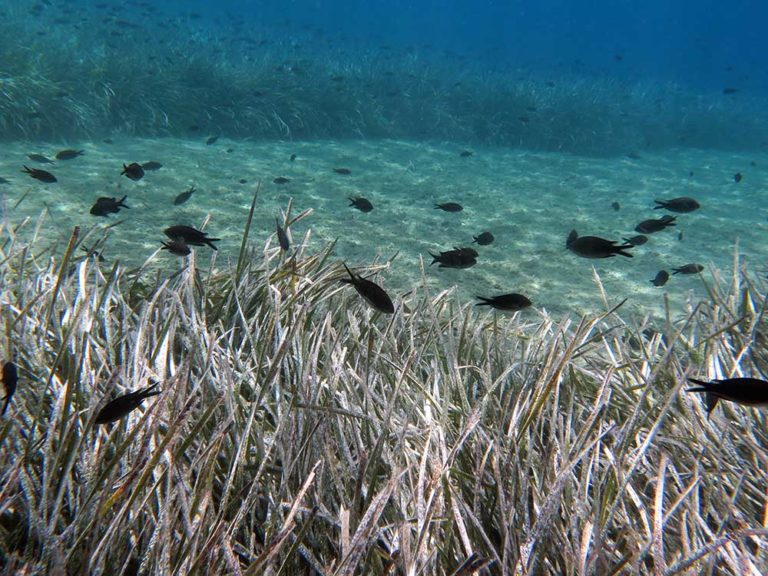Damaging sunscreen chemicals are accumulating in the seagrass meadows that play an important ecological role in the Mediterranean Sea, according to a new report by Spanish scientists.
Seagrasses can host a wide variety of marine species, while acting as a carbon sink and providing a protective barrier against coastal erosion.
Also read: ‘We found long-banned pollutants 8,000m deep’
The research team studied Posidonia oceanica, a seagrass endemic to the Mediterranean, at three sites in Mallorca: at the port of the capital Palma; near another port, Alcudia; and at Ses Salines, regarded as “pristine” because it was less-visited by tourists.
At all three sites the seagrass was found to be accumulating UV filters, consisting of varying mixtures and concentrations of the sunscreen components oxybenzone BP3 and BP4, avobenzone, 4-methylbenzylidene camphor, benzophenone-4 and methyl parabens.
Each compound is a UV filter known to accumulate in marine species such as dolphins, turtles, fish and mussels, causing birth defects, reduced fertility and other effects. The chemicals are already known to damage coral reefs, though the scientists have yet to determine whether and how the UV filters might affect seagrass itself.
Water-treatment plants
Major contributors to the pollution were thought likely to be water-treatment plants – wastewater from such facilities is also known to include other pollutants damaging to marine life, such as pharmaceuticals, microplastics and caffeine.
Water-users wearing non-organic sunscreen were also thought likely to be contaminating the water directly, with beach showers another possible pollution source.
The researchers want further study to be undertaken to determine whether measures should be taken to protect seagrass from UV filters, in the same way that coral-reef-damaging sunscreens are banned in some parts of the world such as Palau and Hawaii.
The study, published in Marine Pollution Bulletin, was led by Nona Agawin from the University of the Balearic Islands working with colleagues from the Institute of Environmental Assessment & Water Research and the Institute of Marine Sciences of Andalusia.
Also on Divernet: Divers Shift Seagrass Seeds And Nets, We Should Fight To Protect UK Seagrass, Divers Can Help Revive Kelp And Seagrass and Palau Enforces Chemical Sunscreen Ban.

